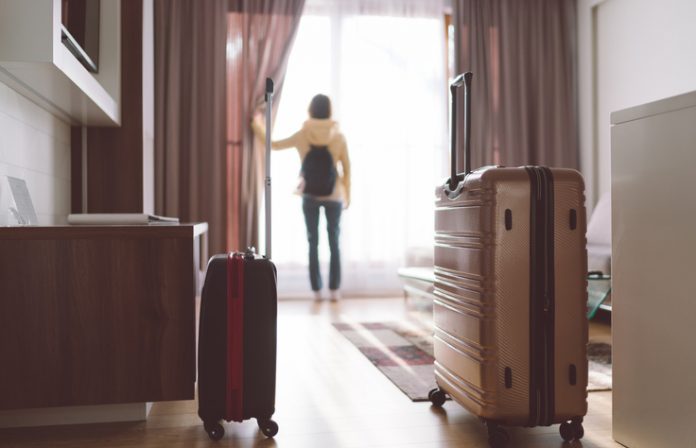Last week, Deloitte released the results of its first in a series of bi-weekly surveys that focus on the effects of the current global health crisis on the mindset of the consumer. The survey, titled Deloitte Global State of the Consumer Tracker, queried 1,000 consumers in 13 countries during the week of April 13, 2020. The survey showed that 63 percent of respondents felt unsafe flying, and 55 percent felt unsafe staying a hotel. But, it also showed that 35 percent of people are still planning to fly domestically or internationally over the next three months, and that nearly a third (29 percent) of 18 to 34-year-olds are “actively looking for travel deals.”
Other takeaways from the Deloitte survey included that more than 50 percent of respondents were concerned about health and nearly one-quarter of respondents were worried about finances. It further showed that only 34 percent of Americans feel safe going to the store right now.
LODGING connected with Stephen Rogers, executive director of the Deloitte Consumer Industry Center, to discuss the results of this first survey and what it potentially means for the hotel industry.
What were some of the key takeaways from the Deloitte survey for the travel industry?
We’ve set out to understand the consumer in this moment. They’re facing a two-front crisis—it started with a global health pandemic that morphed into an economic crisis. The findings from the survey show, right now, that the consumer is weighing health and safety concerns more than they are weighing their financial well-being concerns. We were looking for some insight into their behavior as they weighed those concerns. When it comes to feeling safe going to a hotel, only a quarter of them told us that they were feeling safe going to a hotel.
We also wanted to look at purchase decisions, look at where they’re spending when it comes to travel and how they rebalance their overall share of wallet. Travel’s taken quite a hit. Sixty-three percent of them told us they would spend less on travel over the coming three weeks or four weeks. So, travel obviously is going to take a while to rebound, as there are so many variables. Think about things like reopening plans. How states approach reopening will probably influence how quickly we get back to past travel numbers.
But there were also some signs of optimism. When you look at the cost of the travel products that we asked about—hotels, domestic and international flights, rental cars, renting private accommodations, taking a cruise, etc.—it looks like things will rebound the quickest domestically. And, in terms of the travel products we asked about, staying in a hotel at some point over the next three months looks like it will have a high interest. There is some pent up demand out there. People are tired of being cooped up and looking to get back out. But it may take a while to get there.
Did you see any trends regarding what type of travel people might be pursuing?
Pattern-wise, when you looked across the products, 24 percent of folks say that they planned to stay in a hotel for leisure in the next three months. That’s higher than say some other products, like renting a private accommodation; only 16 percent of folks say they’re doing that. Domestic flights—we’ll see when those come back—but numbers are almost exactly the same.
There’s no question that it’s going to take some time. After all, the flip side of feeling safe is feeling unsafe, and so 55 percent of folks told us that they currently feel unsafe staying a hotel. How hotels reopen, how they make things feel safe, the programs that hotels are running—all that will impact how the public feels about staying at a hotel. That [percentage of people who feel unsafe] may go down, and we’ll let you know period-over-period as that happens. I think right now what consumers are telling us is that this situation is a health concern first and foremost.
But, as mentioned earlier, they are also shifting share of wallet toward essentials. We’ve got a four-week, forward-looking view, and in that view, the travel line is hit the hardest. But as consumers get used to this new normal, and as they start to feel safer, we expect to see that share shift a little bit.
Were there any takeaways from the data that surprised you?
It doesn’t pertain to the U.S., but there are some interesting findings from different parts of the world. For example, France and India have less concern about staying in hotels. It’s not an enormous difference, but they’re the tall blades of grass, with 38 percent of respondents saying they feel safe staying in a hotel. Something’s happening in those two economies where people aren’t feeling as tenuous about it. It’s not where it needs to be—which is people running back to travel—but it’s higher.
There are similar findings in other places. Nearly half of the respondents in China felt safe going to the store, which is interesting because when you look at overall health concerns, people in China by far express the most concern over their personal well-being and personal health. This makes sense, as they’ve been dealing with this crisis the longest, and their responses may be indicating where the rest of us are going to be regarding concern over personal health.











